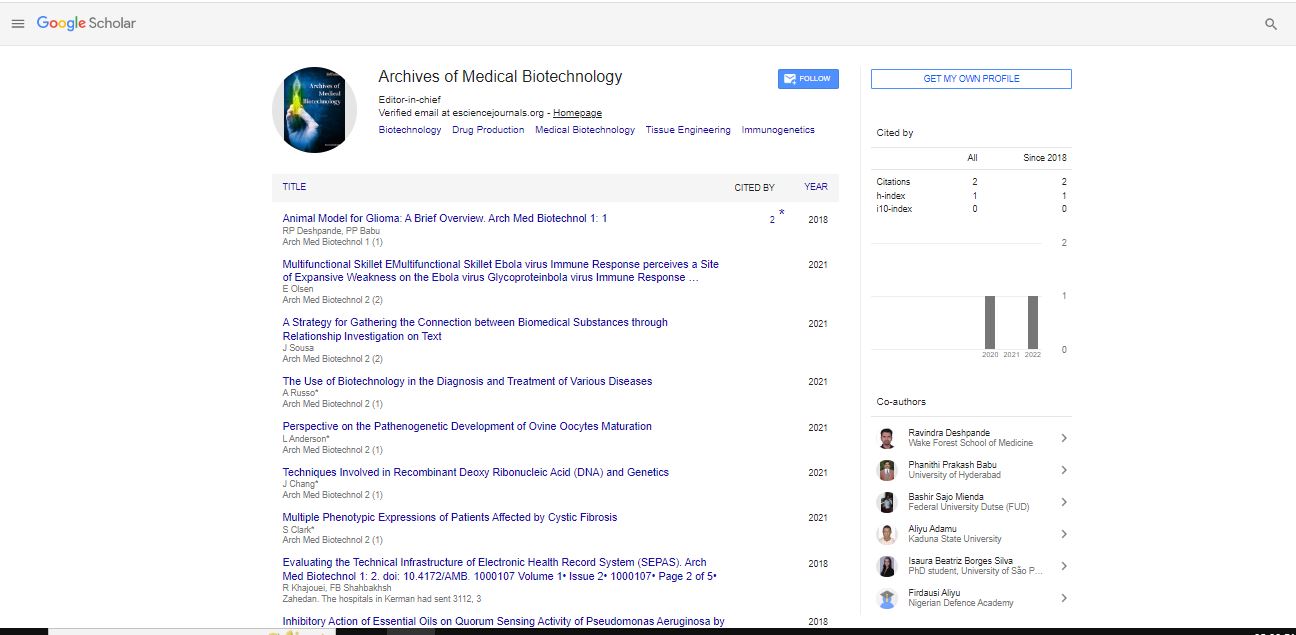A novel approach for perishable food preservation with gamma irradiated biodegradable chitosan
Hossain Uddin Shekhar
Dhaka University, Bangladesh
: Arch Med Biotechnol
Abstract
Chitosan (a linear polysaccharide composed of randomly distributed β-(1-4)-linked D-glucosamine and N-acetyl-Dglucosamine) was extracted from dried waste prawn shell chitin (yield 15-17%) and later degraded by differential γ-radiation dosages (20kGy, 30kGy, 40kGy, 50kGy) of Co60 to see their effectiveness as a biodegradable preservative of perishable foods. Labeo rohita (Hamilton) or rohu fish and betel leaf have been chosen as representatives of perishable food samples (due to microbial infection). 10g/L, 50kGy irradiated chitosan acted as best antimicrobial agent for the fish sample after 6 days long observation. The sensory assessment showed the same chitosan sample kept the fish samples acceptable up to 16 days at (4±1) 0C compared to control sample. Total volatile base nitrogen (TVB-N) indicator shows control fish samples as acceptable up to 6th day (value of TVB-N <35), whereas 10g/L , 50kGy irradiated chitosan treated fish samples were acceptable up to 14 days (28.79±4.2 mg/100g fish). pH of the fish flesh treated by the test chitosan sample showed value near to physiological level (7.18±0.4) up to 16 days. On the other hand, a 5 days observation period divulged , 5g/L, 40KGy irradiated chitosan exposed betel leaf having better appearance and least spoiled. This chitosan sample elicited maximum zone of inhibition in Salmonella (14.1±0.56mm), Shigella (15.26±0.33mm), Pseudomonas (14.85±0.21mm), Escherichia (12.89±0.26mm) and Xanthomonas (16.15±0.28mm). The same concentration of chitosan solution was able to completely inhibit the growth of A. niger, A. flavus, Rhizopus and Colletotrichum fungi in betel leaf.
Biography
Hossain Uddin Shekhar is a promising Professor presently working in the Department of Biochemistry and Molecular Biology, Dhaka University, Bangladesh. He did his PhD and Postdoctoral work in Tokyo Metropolitan University and the United Nation University, Tokyo, Japan, respectively. He worked as a visiting Professor in Chubu University, Nagoya Japan in 2009. He is member of the editorial board of many national and internationally reputed journals at home and abroad. He works in the field of food functionality food safety, clinical Biochemistry and signal transduction.
E-mail: hossainshekhar@du.ac.bd
 Spanish
Spanish  Chinese
Chinese  Russian
Russian  German
German  French
French  Japanese
Japanese  Portuguese
Portuguese  Hindi
Hindi 